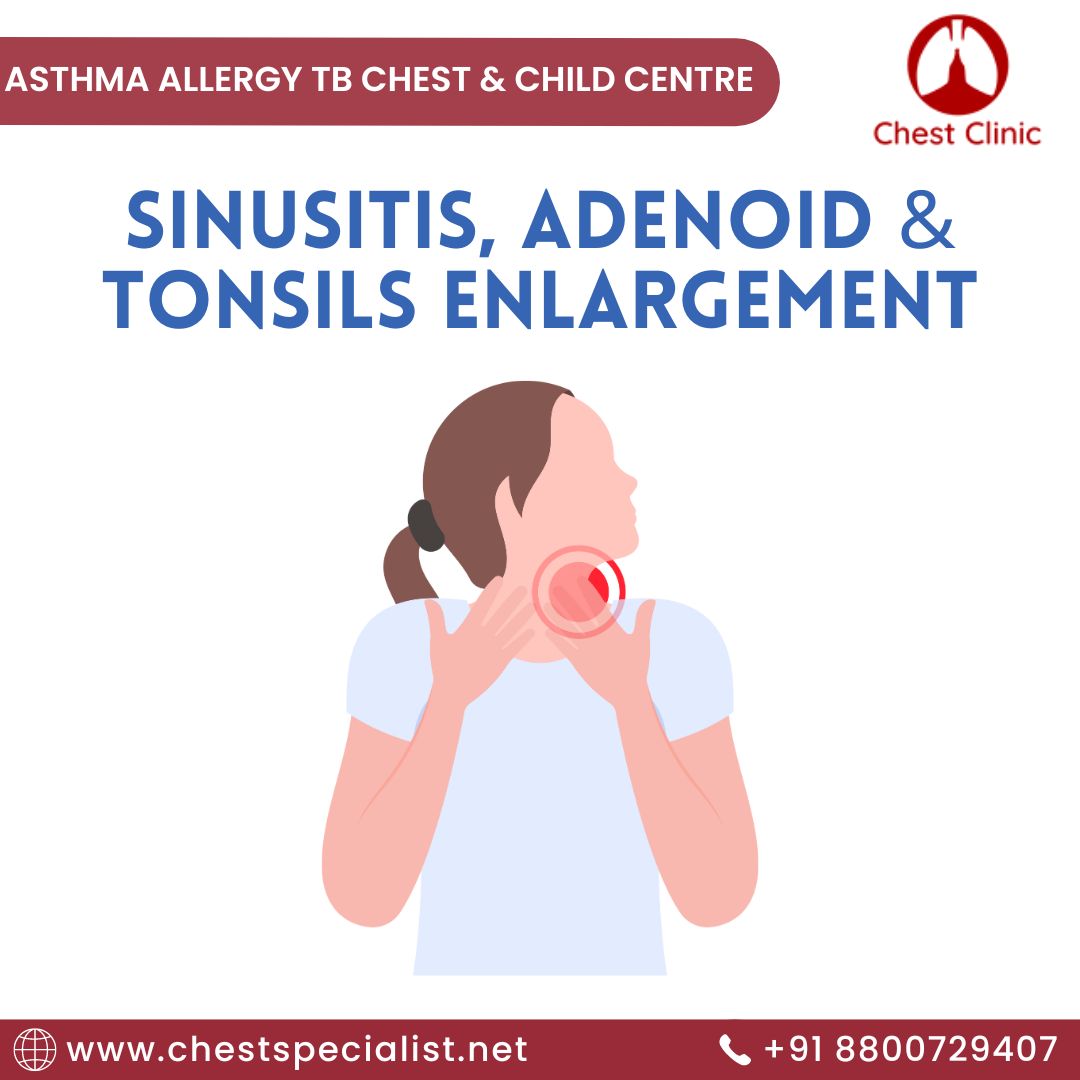Treatment of
Sinusitis, Adenoid & Tonsils Enlargement
|
The upper respiratory system, which includes the nose, larynx, and vocal cords, plays a crucial role in breathing and protecting the lungs. When this system is affected by infections or allergies, it can lead to conditions such as adenoid enlargement, bilateral tonsil hypertrophy, or sinus infections. These issues often manifest through symptoms like nasal blockage, a runny nose, snoring, disturbed sleep, fever, and cough. These symptoms may worsen at night or when lying down, leading to further discomfort.
At our center, we conduct a thorough examination of children and teenagers exhibiting these symptoms to distinguish between upper and lower respiratory tract infections. Accurate diagnosis is key to effective treatment. We employ various diagnostic tools, including X-rays of the adenoids and sinuses, to assess the condition. In more severe cases, such as obstructive sleep apnea or other forms of sleep obstruction, we recommend sleep studies to monitor the patient’s nighttime breathing patterns.
Treatment is tailored to the individual based on clinical findings and diagnostic tests. This may involve oral or nasal medications to alleviate symptoms and treat the underlying condition. Dr. Jasmeet Kaur Wadhwa, a renowned pulmonologist and allergist, leads our team with expertise in managing and treating patients with upper respiratory system disorders. Her approach ensures that each patient receives the best care for their specific needs, helping them return to healthy, normal breathing.
• The Nose, Larynx, and Vocal Cords are all part of the upper respiratory system. The upper respiratory tract may be infected or allergic. This can result in expansion of the adenoids, bilateral tonsil hypertrophy, or sinus infection.
• Symptoms such as nasal block, running nose, snoring, disturbed sleep, fever, and cough may occur more frequently at night or while lying down. The patient may cough up liquid or create sputum that is white, yellow, or greenish in color.
• At our center, we do a thorough examination of any kid or teenager who exhibits these symptoms and distinguish between upper and lower respiratory tract infections.
• Being patient is a good idea. Adenoids X-ray, Sinus X-ray are examples of investigations that aid in diagnosis. Sleep studies are recommended if symptoms are severe, such as obstructive sleep apnea or nighttime sleep obstruction.
• The patient is given treatment in the form of oral or nasal drugs] based on the clinical and diagnostic tests.
• Dr. Jasmeet Kaur Wadhwa is a renowned pulmonologist and allergist who expertly manages and treats patients suffering from such conditions.
Any Question?
Common symptoms include nasal blockage, a runny nose, snoring, disturbed sleep, fever, and cough. These symptoms often worsen at night or when lying down, and the patient may produce sputum that is white, yellow, or greenish in color.
We use a combination of clinical examination and diagnostic tests, such as X-rays of the adenoids and sinuses. In cases of severe symptoms like obstructive sleep apnea, we may recommend sleep studies to assess the patient’s nighttime breathing patterns.
Treatment is based on the results of clinical and diagnostic tests. It may include oral or nasal medications designed to alleviate symptoms and treat the underlying infection or allergic reaction.
If your child exhibits persistent symptoms like nasal blockage, snoring, disturbed sleep, or a chronic cough, it’s advisable to seek medical attention. Early diagnosis and treatment can prevent complications and improve your child’s quality of life.
Dr. Jasmeet Kaur Wadhwa, a highly experienced pulmonologist and allergist, leads our team. She specializes in the diagnosis and treatment of upper respiratory tract conditions in children and teenagers, ensuring they receive expert care.

